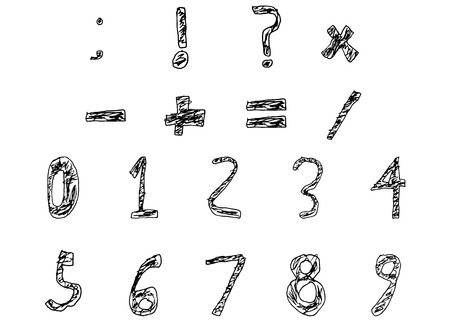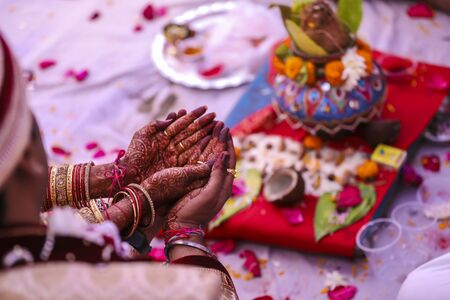Introduction to Mangal Dosha in Indian Astrology
In the vast and intricate world of Indian astrology, Mangal Dosha, also known as Manglik Dosha, holds a significant position, especially when it comes to marriage compatibility. According to Vedic astrology, this dosha is said to occur when the planet Mars (Mangal) is positioned in certain houses of a persons birth chart—namely the 1st, 2nd, 4th, 7th, 8th, or 12th houses. The presence of Mangal Dosha is widely believed to impact married life and is often viewed with concern in traditional Indian families. In the context of Indian marriages—whether love marriage or arranged marriage—the perceived effects of Mangal Dosha influence crucial decisions about matchmaking and marital harmony. For many Indians, checking for Manglik Dosha forms an integral part of the marriage process, reflecting deep-rooted beliefs and cultural practices that have been passed down through generations. The importance attributed to Mangal Dosha can shape not only personal relationships but also family dynamics and social acceptance within the wider community.
Cultural Perspectives: Love Marriage vs Arranged Marriage in India
In India, the concepts of love marriage and arranged marriage represent two distinct cultural paradigms, each with its own set of beliefs, expectations, and commonly used expressions. Understanding these differences is essential when discussing the effect of Mangal Dosha on marital decisions.
Love Marriage: Shifting Norms and Modern Expressions
Love marriages, often referred to as “prem vivah” in Hindi, are becoming increasingly common in urban areas. In a love marriage, individuals choose their life partners based on personal affection and compatibility. Popular phrases include “love-cum-arranged marriage,” indicating family approval after a couples initial relationship, and “self-choice marriage.” Societal attitudes toward love marriages are evolving, especially among the youth, who view them as an expression of individual freedom and compatibility. However, traditional families may still express concerns regarding caste, religion, or horoscope compatibility, including Mangal Dosha.
Arranged Marriage: Tradition and Family Values
Arranged marriages—known as “arranged vivah”—remain deeply rooted in Indian society. Here, families play a central role in selecting suitable matches based on factors like caste (“jati”), community (“samaj”), economic background, and horoscope compatibility (“kundali milan”). Commonly used phrases include “family-approved alliance,” “matrimonial match,” and “suitable rishta.” Social acceptance is generally higher for arranged marriages due to the involvement of elders and adherence to tradition. In such settings, checking for Mangal Dosha is almost routine before proceeding with any engagement.
Key Cultural Differences at a Glance
| Aspect | Love Marriage | Arranged Marriage |
|---|---|---|
| Partner Selection | By individuals (self-choice) | By families (with/without individual consent) |
| Common Phrases | “Prem Vivah”, “Self-choice”, “Love-cum-arranged” | “Arranged Vivah”, “Suitable Rishta”, “Family-approved” |
| Societal Attitude | Increasing acceptance in cities; mixed views in rural areas | Widespread acceptance; considered traditional norm |
| Role of Horoscope (Mangal Dosha) | Considered but sometimes overlooked if mutual love is strong | Strictly checked before proceeding further |
Cultural Impact on Marital Harmony
The difference in how society views love marriages versus arranged marriages directly influences the significance given to astrological factors like Mangal Dosha. While arranged marriages emphasize family honor and social conformity—with Mangal Dosha acting as a key decision factor—love marriages often prioritize emotional bonds over astrological matching, though parental approval may still require addressing doshas through remedies or rituals.

3. Impact of Mangal Dosha in Arranged Marriages
In the context of arranged marriages in India, the presence of Mangal Dosha is given significant importance during the matchmaking process. This astrological condition, also called Manglik Dosha, arises when Mars (Mangal) is positioned in certain houses of a persons horoscope. Traditionally, Indian families rely heavily on Kundali Milan (horoscope matching) as an initial and crucial step in arranging marital alliances. During this ritual, both families consult experienced astrologers or family priests to analyze the horoscopes of the prospective bride and groom. The main objective is to ensure compatibility and avoid any doshas—especially Mangal Dosha—which is believed to cause disharmony, financial troubles, or even separation if not addressed.
The Role of Kundali Milan in Marriage Decisions
Kundali Milan involves matching Gunas (qualities) through the Ashtakoota system, where a total score is calculated out of 36 points. If either party is identified as Manglik, special attention is paid to how severe the dosha is and whether it can be neutralized by remedies or by pairing with another Manglik individual. In many cases, families may reject a match outright if there is a strong presence of Mangal Dosha, fearing its potential negative effects on marital life.
Family Involvement and Social Expectations
Arranged marriages in India are not just about two individuals coming together; they represent the union of two families. Therefore, parents and elders are deeply involved at every stage. Their primary concern is to ensure a harmonious and prosperous future for their children, which leads them to prioritize astrological compatibility. Mangal Dosha often becomes a deciding factor—even more than personal preferences or emotional bonds—because of its perceived impact on health, longevity, and marital bliss.
Astrologers’ Influence and Ritual Remedies
Astrologers play a pivotal role in guiding families through this process. They provide detailed readings and suggest specific remedies if Mangal Dosha is detected—these may include performing pujas (prayers), fasting on certain days like Tuesdays (dedicated to Mars), or conducting Kumbh Vivah (a symbolic marriage ritual). Such practices are deeply rooted in Indian traditions and reinforce the belief that addressing astrological issues beforehand can safeguard the couple’s future together.
In summary, within arranged marriage settings in India, Mangal Dosha analysis through Kundali Milan is an integral part of decision-making. The collective involvement of families and astrologers ensures that cultural values and traditional beliefs are respected while striving for marital harmony.
4. Effect of Mangal Dosha in Love Marriages
In Indian society, love marriages often face unique challenges when it comes to astrological factors such as Mangal Dosha. Unlike arranged marriages, where families usually consult astrologers before proceeding, couples in love marriages might not consider horoscopes at the initial stage of their relationship. Once the topic of marriage arises, the presence of Mangal Dosha becomes a significant concern, especially for parents and elders.
Handling Mangal Dosha in Love Marriages
Couples who choose love marriage tend to approach Mangal Dosha with a practical mindset. Many urban youth, especially in metros like Mumbai, Delhi, or Bengaluru, may not give much importance to Manglik dosha. However, in semi-urban or traditional families, this belief still holds strong influence. The couple may either ignore the dosha or try to convince their parents using scientific explanations or examples of happy Manglik-non-Manglik marriages. In some cases, they may agree to perform remedies (upayas) such as Mangal Shanti pooja or marrying a peepal tree or idol before their actual wedding.
Family Acceptance and Cultural Beliefs: A Comparison
| Love Marriage | Arranged Marriage | |
|---|---|---|
| Initial Horoscope Matching | Usually after relationship is established | Before any commitment |
| Parental Reaction to Mangal Dosha | Often skeptical or resistant; can lead to emotional discussions | Generally cautious; may reject proposal outright if dosha is present |
| Cultural Flexibility | Younger generation may challenge tradition; parents less flexible | Both sides likely adhere strictly to tradition |
| Acceptance After Remedies | If remedies are done, sometimes grudging acceptance by family | If remedies are effective, proposal may proceed smoothly |
| Influence of Modern Beliefs | High among youth; emphasis on compatibility over astrology | Less influence; astrology remains primary factor |
Summary of Differences in Handling Mangal Dosha
To sum up, love marriages in India navigate the issue of Mangal Dosha differently compared to arranged marriages. While couples themselves may be less concerned about astrological mismatches, family approval and cultural expectations still play a crucial role. The readiness to accept astrological remedies or overlook the dosha depends greatly on the openness of both families and the strength of cultural beliefs prevalent in their community.
5. Traditional Remedies and Regional Practices
Insight into Common Indian Remedies for Mangal Dosha
Mangal Dosha is a significant astrological concern in Indian marriages, often influencing both love and arranged marriage decisions. To mitigate its effects, families commonly turn to traditional remedies rooted in Vedic astrology. One of the most prevalent solutions is the Mangal Shanti Pooja, a ritual performed to appease Mars (Mangal) and reduce its malefic impact on marital life. This pooja involves chanting specific mantras, offerings, and prayers to invoke blessings and harmony in marriage. Besides this, many astrologers may recommend wearing gemstones like red coral or observing fasts on Tuesdays, which are considered auspicious for Mars.
Regional Variations in Addressing Mangal Dosha
The approach to handling Mangal Dosha can vary greatly across different Indian regions and communities. In North India, especially among Hindu families, horoscope matching is a non-negotiable step before finalizing any marriage—love or arranged. If Mangal Dosha is present, families will insist on remedial rituals before proceeding further. On the other hand, South Indian traditions may place even greater importance on Dosha matching, with some communities refusing to allow a union if a strong Mangal Dosha exists unless both bride and groom share the same Dosha (known as “Kuja Dosha Samya”).
Community-Specific Rituals
Certain communities have their unique practices for neutralizing Mangal Dosha. For example, some Maharashtrian families conduct the “Kumbh Vivah,” where the affected individual first ‘marries’ a banana tree or an idol of Lord Vishnu before marrying their human partner. In Tamil Nadu, “Sevvai Dosham” (another term for Mangal Dosha) may be addressed through elaborate temple rituals and charitable acts.
Love vs Arranged Marriage: The Cultural Nuance
In arranged marriages, these remedies are typically executed under the guidance of family elders and priests. Love marriages may see a more flexible or modern approach; couples might consult astrologers together or seek alternative solutions if one partner’s family insists on addressing the Dosha. In urban settings, some couples choose to blend tradition with practicality—honoring certain rituals for familial peace while prioritizing mutual understanding over astrological obstacles.
Overall, whether it is a love marriage or an arranged one, the remedies and responses to Mangal Dosha reflect the diversity of Indian cultural beliefs and practices. Understanding these regional nuances helps couples and families navigate marital harmony while respecting tradition.
6. Contemporary Attitudes and Changing Mindsets
In recent years, the perception of Mangal Dosha in the context of love and arranged marriages is undergoing significant transformation, especially among the Indian youth. Traditionally, Mangal Dosha was seen as a decisive factor that could make or break marriage alliances, but modern beliefs and urban influences are gradually shifting this perspective.
Urban vs Rural Perspectives
In metropolitan cities like Mumbai, Bengaluru, and Delhi, young couples and their families are increasingly questioning the age-old astrological restrictions associated with Mangal Dosha. Many urban youths view compatibility through the lens of shared values, education, and mutual respect rather than just astrological charts. While some still consult astrologers for reassurance, the overall influence of Mangal Dosha on marriage decisions is diminishing in these areas.
On the other hand, rural communities often remain more traditional in their approach. Here, astrology continues to play a crucial role in both love and arranged marriages. Families may reject proposals outright if there is a presence of Mangal Dosha unless certain remedies or rituals are performed to mitigate its effects.
The Influence of Education and Globalization
With increasing access to higher education and global exposure, Indian youth are adopting a more rational outlook towards marriage customs. Many question the scientific validity of doshas and prioritize personal compatibility over astrological concerns. This shift is also evident in popular culture and social media discussions where stories of successful marriages despite Manglik dosha are widely shared.
Changing Family Dynamics
Families too are evolving with time. Parents who once insisted on strict horoscope matching are now more flexible if their children express strong preferences for a partner—be it in love or arranged settings. There is a growing belief that happiness in marriage depends more on understanding and support than on planetary positions.
However, it’s important to note that while attitudes are changing rapidly in cities and among the educated class, traditions still hold sway in many parts of India. As a result, the effect of Mangal Dosha in love versus arranged marriages continues to be shaped by a dynamic interplay between age-old beliefs and contemporary mindsets.
7. Conclusion: Importance of Understanding Mangal Dosha in Indian Marriages
In conclusion, the awareness and understanding of Mangal Dosha play a crucial role in shaping the dynamics of both love marriages and arranged marriages in Indian society. Whether couples choose their own partners or rely on family guidance, acknowledging the potential impact of Mangal Dosha helps in building realistic expectations and preparing for challenges that may arise. For many Indian families, the consideration of Mangal Dosha is not just a ritual but a deeply rooted cultural practice that influences decisions around compatibility, harmony, and future well-being.
With increasing intercultural relationships and changing social norms, sensitization towards astrological beliefs like Mangal Dosha becomes even more important. It allows individuals from different backgrounds to appreciate the significance these traditions hold for many Indians. For couples, especially those navigating intercultural unions, open conversations about such beliefs foster mutual respect and understanding. This awareness can help in bridging gaps between traditional expectations and modern values, ensuring stronger support systems for marital harmony.
Ultimately, whether one personally believes in astrology or not, recognizing the relevance of Mangal Dosha within Indian culture is essential for promoting empathy and unity among families and communities. Encouraging dialogue and education around this topic not only reduces stigma but also empowers couples to make informed choices that honor both their personal aspirations and cultural heritage.


